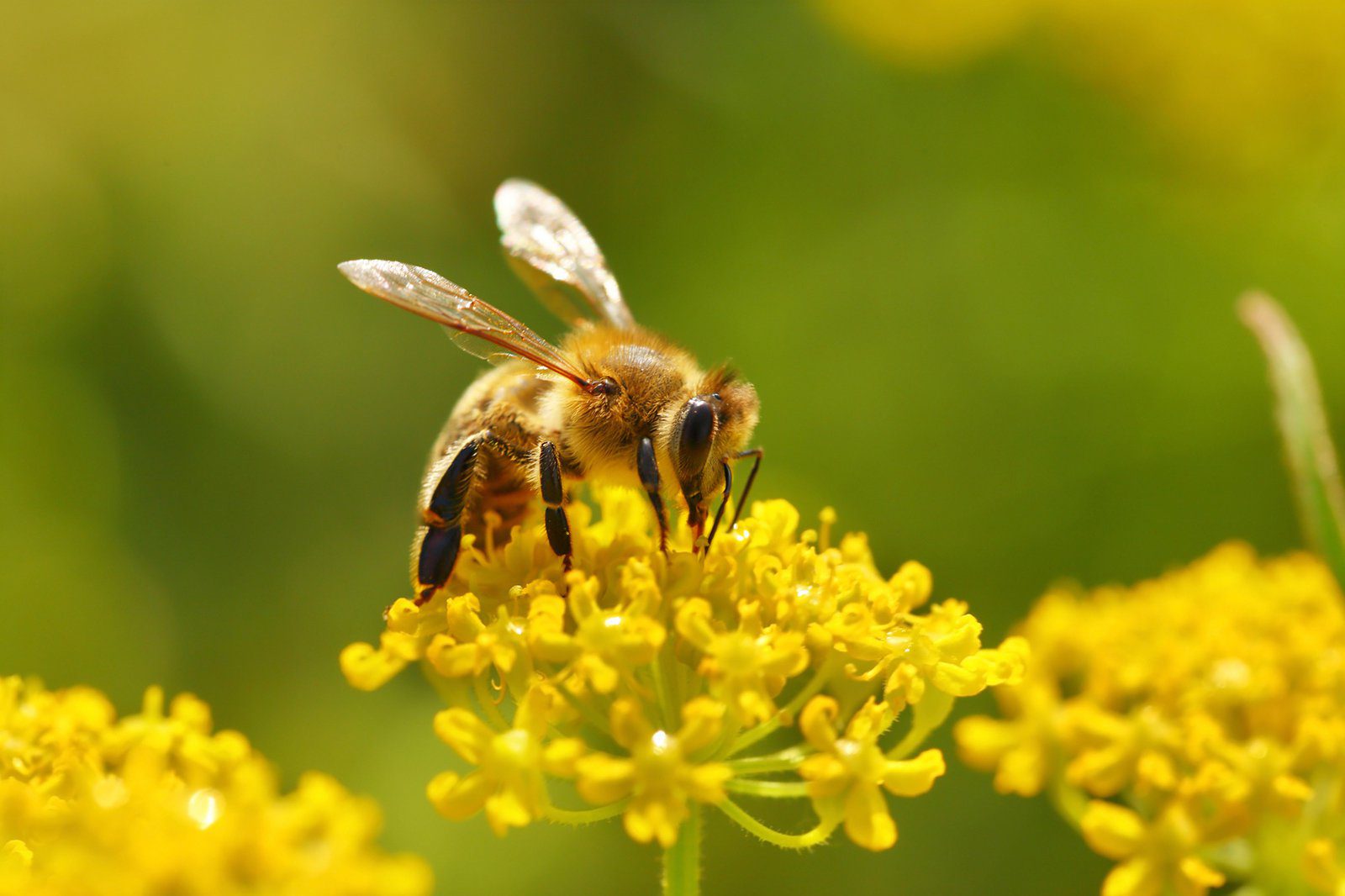
By ft
1. The sting and its benefits to health
A toxin in the bee poison called melittin provides protection from HIV. Scientists from Washington University in St. Louis experiment with the application of toxin in various gels. Bee stinging can effectively alleviate pain caused by rheumatoid arthritis.
2. They work harder than you
In the autumn and winter a bee can live up to 6 months while in the spring and summer lives up to 7 weeks. They literally work to death!
3. When bees change their jobs, the chemistry of their brain changes
Bees have a job distribution that is related to their age. Once a bee is born it undertakes cleaning its cells. As it grows older it goes through various tasks, such as taking care of the fetus and the queen, building cells, guarding the hive, and collecting food at a later age. Bees are able to perform multiple tasks during their life changing their brain chemistry.
4. Alternative medicine
Bees use a sticky resin called propolis. Although bees use it to close holes, cuts and disinfect their hive, propolis is used by humans to fight bacteria, viruses and fungi. Many studies have shown that propolis can be used effectively in the treatment of the respiratory system, can relieve otitis, have antioxidant properties and anticancer action.
5. Bees have personalities
Even in the hives there are workmen and scumbaggers like drones. Researchers from the University of Illinois have found other bees to be more daring and others less. A 2011 study found that troubled bees may be a bit pessimistic, suggesting to some extent that they may have some feelings.
6. They have very good memory
Many believe that only the primates are smart, but they are wrong, says French Oréargger-Weber, a researcher at the University of Toulouse, where she found that when she placed the bees in a labyrinth, they spotted the different signs, understood them quite quickly and immediately they chose to follow the sign that would lead them to the exit where their reward had been waiting for them. Although their brain has the pin head size, bees have excellent vision and good memory, and they are not only directed by their instincts.
7. They are the most economical builders of nature
In 36 BC. Marcos Terestios Barras argued that honeycombs are the most practical structures of nature. Nearly 2000 years later, Thomas Heles wrote 19 pages of mathematical proofs showing that of all possible structures, honeycombs use the minimum percentage of wax to portray a perfect hex.
8. They can help locate serial killers
The behavior of serial killers demonstrates a remarkable resemblance to the behavior of bees. They carry out their crimes near their home, but far enough from their neighbors so as not to suspect them. Similarly, bees collect pollen near their hive, but far enough from predators so that they can’t find their hive. To understand how this dead zone works, scientists have studied bee behavior by capturing some algorithms. Their findings have been adapted to modern computer models used by the police to locate criminals.
9. They are creators of jobs
Americans consume about 285 million liters of honey every year. The US Department of Agriculture estimates that bees fertilize about 80% of crops pollinated by insects, ie they plant crops worth more than $ 20 billion each year.
10. Napoleon’s choice
Napoleon the Great is undoubtedly one of the most industrious and intelligent men in world history. He chose as the emblem of his empire the bee. Not the lion, neither the eagle nor the wolf. Is this random? I do not think so.